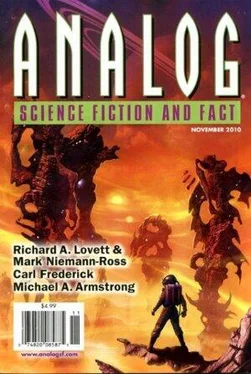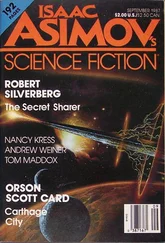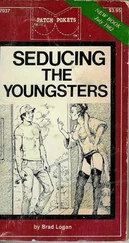Brad Torgersen - Outbound
Здесь есть возможность читать онлайн «Brad Torgersen - Outbound» весь текст электронной книги совершенно бесплатно (целиком полную версию без сокращений). В некоторых случаях можно слушать аудио, скачать через торрент в формате fb2 и присутствует краткое содержание. Год выпуска: 2010, Издательство: Dell Magazines, Жанр: Фантастика и фэнтези, на английском языке. Описание произведения, (предисловие) а так же отзывы посетителей доступны на портале библиотеки ЛибКат.
- Название:Outbound
- Автор:
- Издательство:Dell Magazines
- Жанр:
- Год:2010
- ISBN:нет данных
- Рейтинг книги:5 / 5. Голосов: 1
-
Избранное:Добавить в избранное
- Отзывы:
-
Ваша оценка:
- 100
- 1
- 2
- 3
- 4
- 5
Outbound: краткое содержание, описание и аннотация
Предлагаем к чтению аннотацию, описание, краткое содержание или предисловие (зависит от того, что написал сам автор книги «Outbound»). Если вы не нашли необходимую информацию о книге — напишите в комментариях, мы постараемся отыскать её.
Outbound — читать онлайн бесплатно полную книгу (весь текст) целиком
Ниже представлен текст книги, разбитый по страницам. Система сохранения места последней прочитанной страницы, позволяет с удобством читать онлайн бесплатно книгу «Outbound», без необходимости каждый раз заново искать на чём Вы остановились. Поставьте закладку, и сможете в любой момент перейти на страницу, на которой закончили чтение.
Интервал:
Закладка:
It took me only a few minutes to master the network, and another few to access and test all the remaining, functional systems in the observatory.
At once, it became obvious how sloppy and haphazard I’d been. Total facility efficiency was down to 42 percent, with a list of yellow, orange, and red-lined items stretching into the hundreds. While I scanned and prioritized, I received continual jolts of data from Howard’s arrays. One moment, I’d be wondering how to fix a certain problem. The next, the knowledge would be there, as if it had always been, as if I’d done it a hundred times before.
Though his personality was barely perceptible in the data, like a tiny aftertaste on the tongue, Howard was still, for all intents and purposes, gone. I sent numerous mental thank-yous to the man’s memory, then made ready to depart the buoy, and begin the downhill leg of my journey towards the Outbound.
One thing about being a computerized mind: I could make time go as fast or as slow as I wanted to. Weeks and months evaporated in a blink while I made necessary fixes to reactors and set up a schedule to ration the fuel supply, all the while thrusting gently up the relative velocity curve, being careful to have more than enough fuel left over at the endpoint for braking. I had no idea what might be waiting for me there, but I knew it’d probably be bad manners to go speeding past the Outbounders like a semi that’s lost its brakes on a steep hill.
I turned my radios forward and began gently peppering my flight path with greetings for whoever it was that would meet me.
I suppose there was always a chance that nobody would meet me, and that the buoy, for all its promise, could have been a deception, or even a relic from an effort that had since failed. But my computer-dictated intellect didn’t have the capacity for real fear. Such strong emotion, I found, was purely a residual memory—like a stimulus response, now delayed. I knew I should be afraid, but this was largely a past-tense knowledge, and did not affect my overall progress, or my determination to reach my goal.
What happened when I got there… Well, I purposely tried not to wonder about that. What use would the Outbound have for a computer mind like me? It wasn’t like I could just put myself back into my own head again. Nor, I began to think, would I want to. The expanded capacity of the neural arrays was almost intoxicating, and after a couple of years had passed I suspected that if ever I had to be restricted again to one set of eyes, one set of ears, one set of senses, I might feel so claustrophobic about the whole affair, I’d go mad.
With the main telescope mostly wrecked, I deployed the backup and used my idle cycles to scan and chart the narrow sliver of the Kuiper Belt through which I passed.
It really was amazing to see so much debris in an area of space that most humans still thought of as empty, even up to and through the twenty-second century. Only the Outbound had had the forethought to see this region for what it truly was: a refuge from the catastrophes that were sure to strike the planets of the solar system—be they comets or asteroids, intense solar flares, or as had actually happened, the competitive stupidity of humanity itself.
Out in the Kuiper Belt, there was room enough to get lost. Like a hermit penetrating deep into the wild, seeking resources enough to survive and distance enough to avoid the madness of other people.
I found two more buoys, each with a similar message to the first.
My antimatter fuel passed the point of no return, making it totally impossible to go back to the Jovian region of space. But I paid little attention. I was Outbound now, and there would never be any going back.
Another decade’s worth of time elapsed in surreal ease, and at the end of that, another micrometeoroid shower hit. But I’d secured the vital systems before putting myself into the computer, and the effort paid off. Nothing important was damaged, though the hydroponics and other life support systems would never operate again—too many micro-holes.
I wondered why my messages, which I had been casting ahead of me like rocks across a pond, garnered no response.
Maybe that was just the nature of being Outbound—never reveal yourself until it’s absolutely necessary.
At the twenty-ninth year since leaving Jupiter, I should have felt excited and nervous with anticipation.
I felt only lingering ghosts.
I never saw the other ship.
One moment I was alone in space. The next moment a fifty-meter-wide wedge was matching course and speed—which was no small feat.
I politely lobbed radio hellos at the wedge, anticipating a reply. But all the wedge did was spit out a dozen, tinier wedges, each of which fell on the observatory like fleas on the ass of a fresh dog, and suddenly I was struck by the notion that I’d been baited into a colossal trap.
Each of the small wedges touched down and disgorged a series of spider-like drones that began scrambling into the observatory’s interior, cutting through metal and rock as easily as a hot knife through butter.
My hello calls became pressed, and then frantic. The spiders blindly ignored my efforts and sped towards the hole where I’d stashed the memory arrays. My cameras and other senses followed them, and I’d have screamed if I’d still felt the kind of visceral panic necessary.
I remember one last camera view, overlooking the arrays. I watched a spider that climbed on top of my databanks, hungrily rubbing together its claw-tipped forelegs, then I sensed my mind fissioning into separate parts—which seemed like the worst kind of insanity imaginable—then merciful blackness.
Reactivation was bothersome, because they wouldn’t let me see, hear, or sense anything. Not at first. All I got was the impression that someone needed me to be patient, so I waited, tasting the quality of my thoughts and finding them… truncated. Limited. The absolute speed and precision of the observatory’s databanks was missing. It felt like… It felt like?
When I finally opened my eyes—?!—I was greeted by several different faces, all of which appeared concerned. I sat up and looked at the Outbounders, each of whom was dressed in what I took for medical gowns, though the room in which they’d placed me was remarkably warm and free from anything even approaching a scalpel or other menacingly surgical object.
“I’m Doctor Hastel. How do you feel?”
That was one of the women, who looked about forty.
“I’m not sure yet,” I said. “How did you… put me back?”
“It’s a long explanation,” said one of the men, an Asian fellow in his thirties who identified himself as Surgeon Chow. “Here, I’ll make it simple for you.”
He never moved, but there was a sudden mind jolt, like the ones I’d gotten from Howard’s memory array. In the space of a single second, I suddenly understood everything about the Outbounder procedure. They’d cloned me, using tissue from the frozen corpse they’d found in the observatory’s recording room. Inside my clone brain they’d installed a new organ: a direct-connect interface. They’d used it to slowly trickle my cerebral matrix into the clone brain while the clone body grew.
Now that I was awake, the direct-connect would allow me to access their public network—once they deemed it safe for me to do so. I still had a lot to learn before I could get out of the hospital.
All of this knowledge arrived in my consciousness with a cool surety, as if I’d always known such things. But I felt a tight thrill run down my spine while I looked down at my legs.
“Fully functional?” I asked.
“Yes,” Hastel said, with a small smile. “Were they not before?”
“No,” I said. “Paraplegic.”
Читать дальшеИнтервал:
Закладка:
Похожие книги на «Outbound»
Представляем Вашему вниманию похожие книги на «Outbound» списком для выбора. Мы отобрали схожую по названию и смыслу литературу в надежде предоставить читателям больше вариантов отыскать новые, интересные, ещё непрочитанные произведения.
Обсуждение, отзывы о книге «Outbound» и просто собственные мнения читателей. Оставьте ваши комментарии, напишите, что Вы думаете о произведении, его смысле или главных героях. Укажите что конкретно понравилось, а что нет, и почему Вы так считаете.












